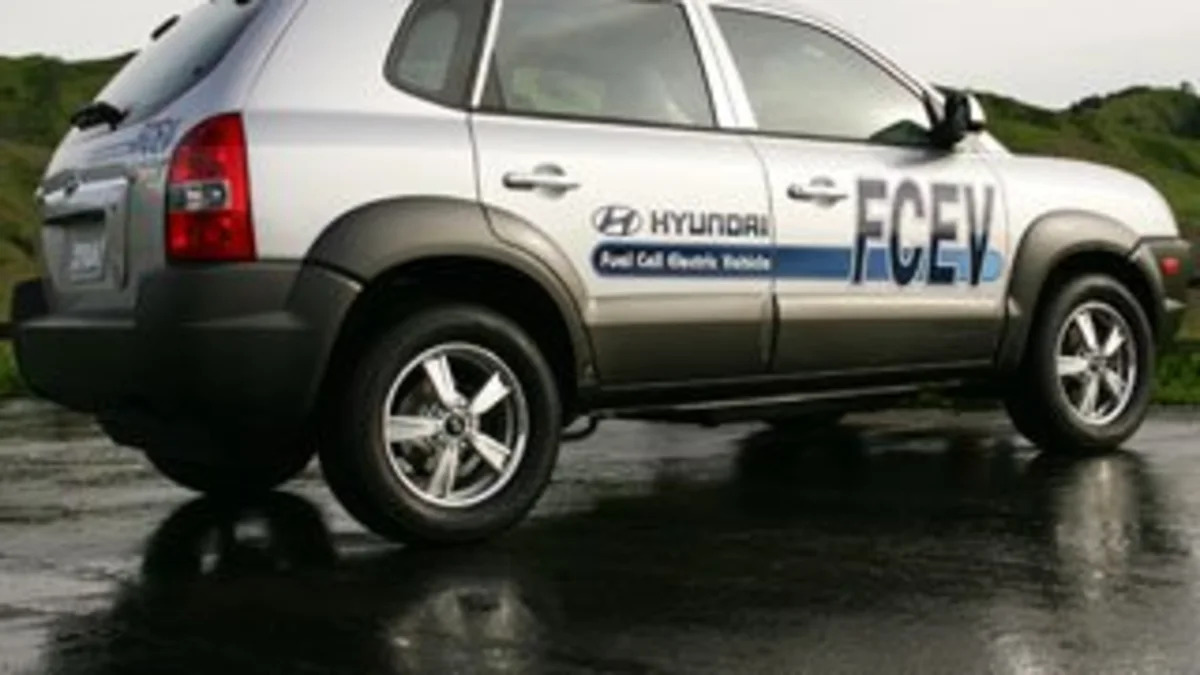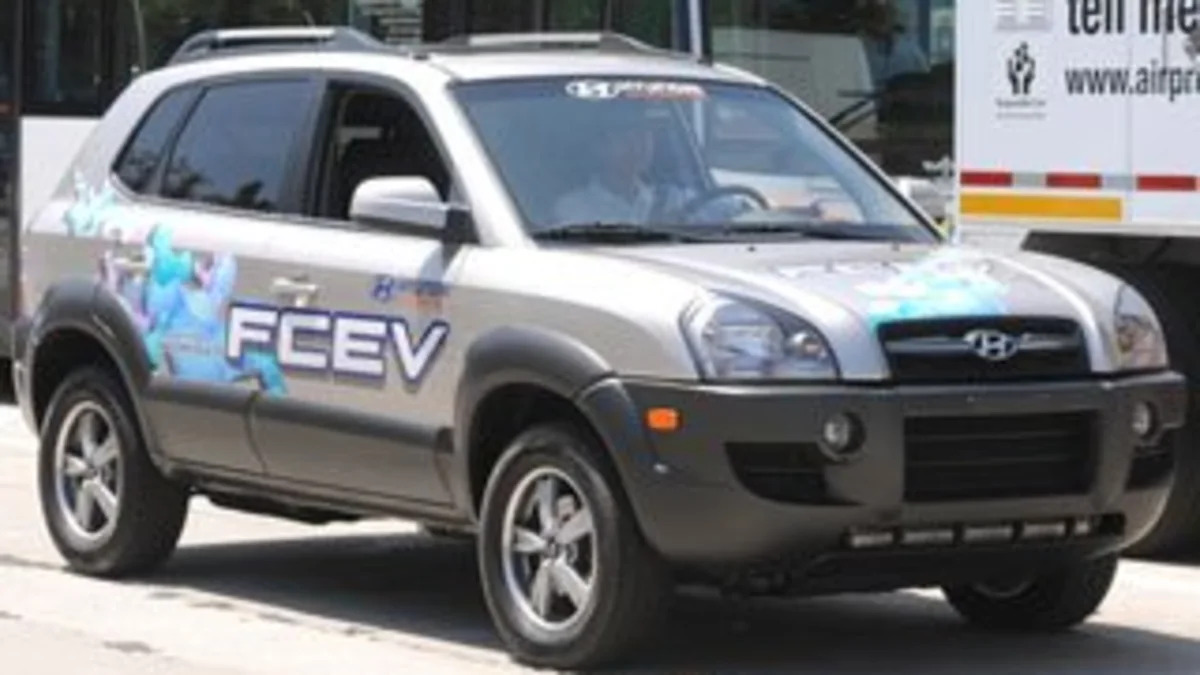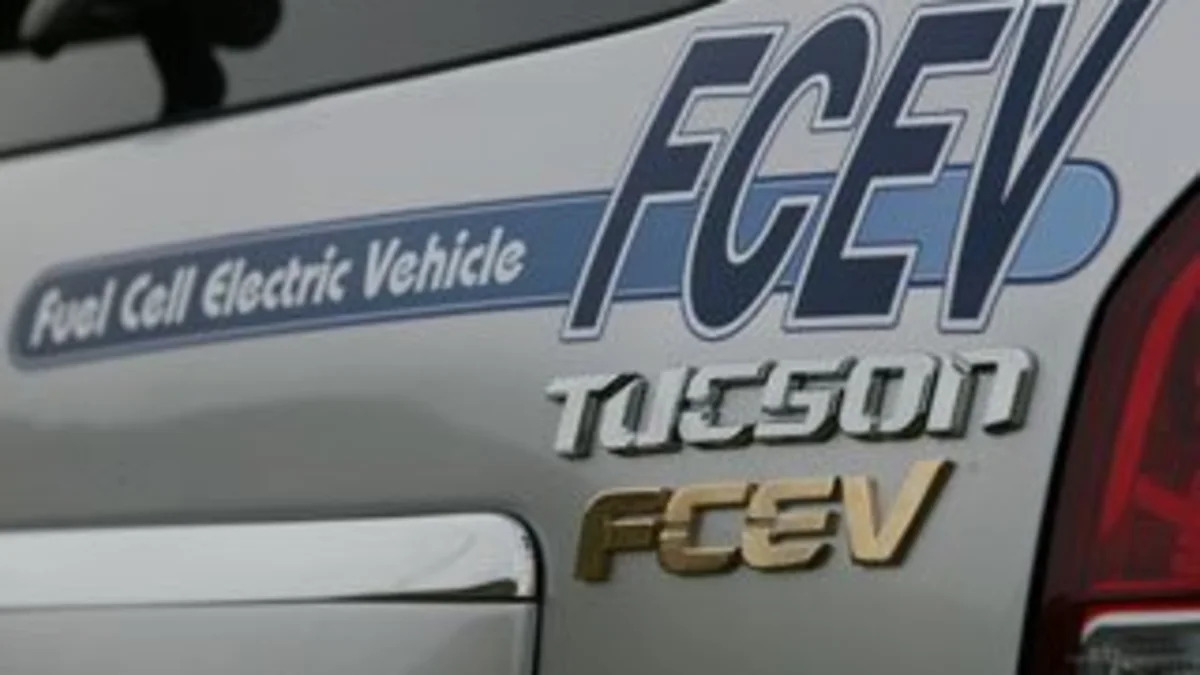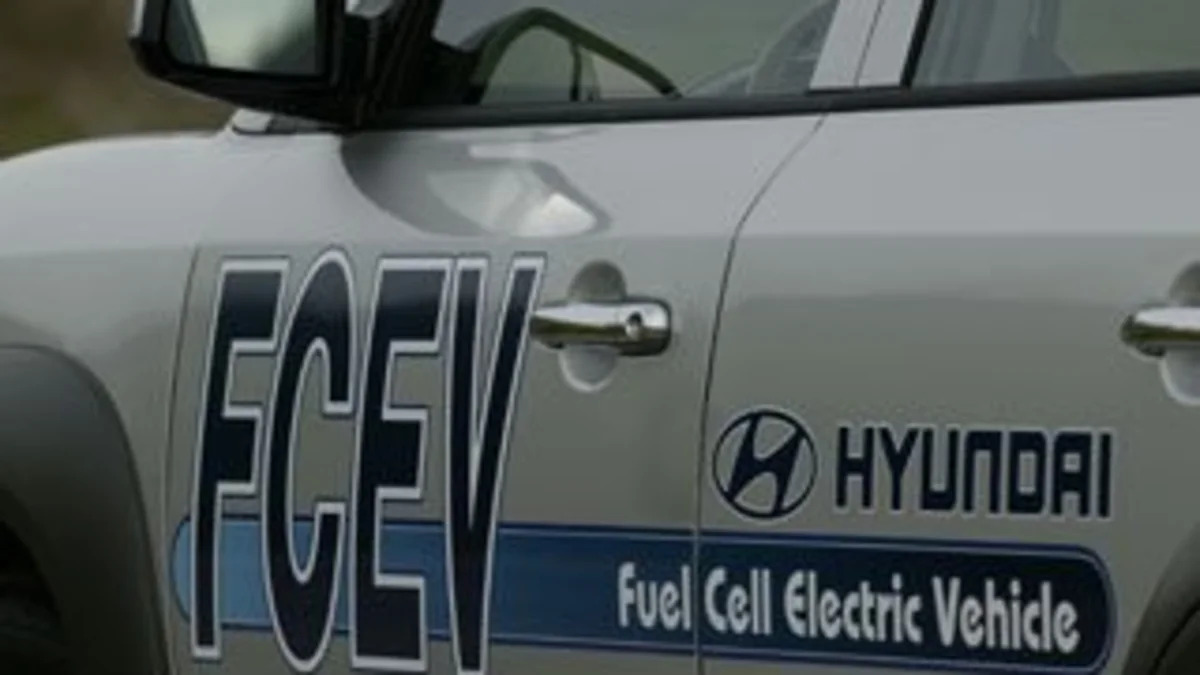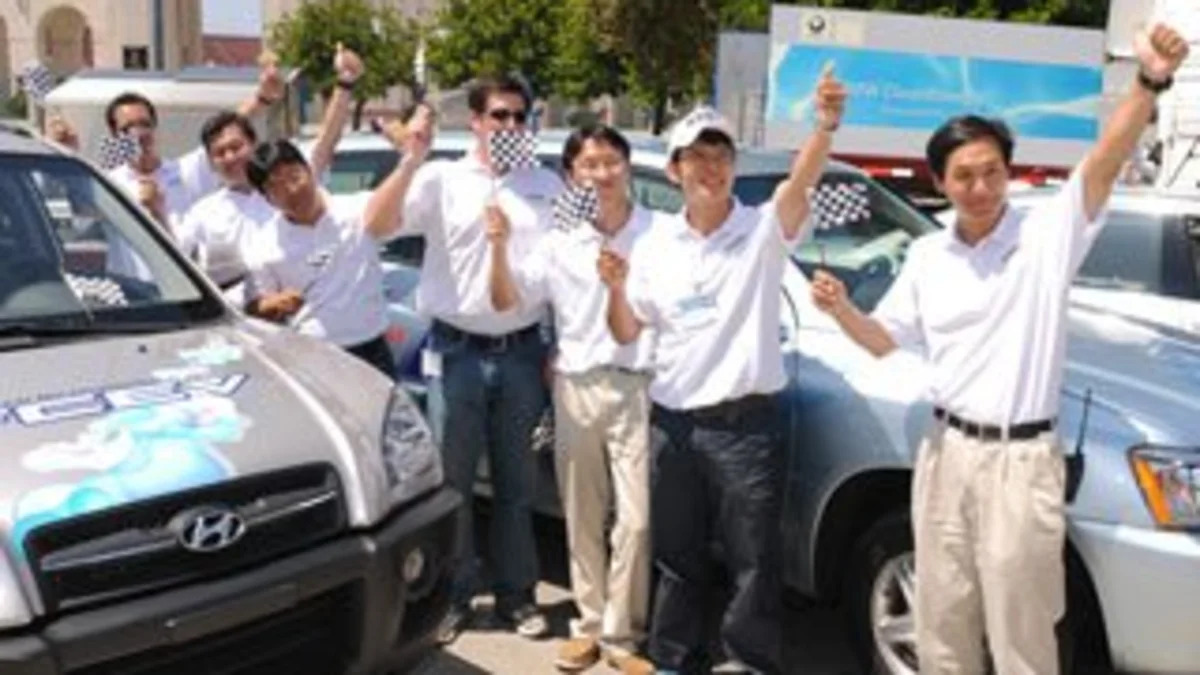hyundai hydrogen tucson
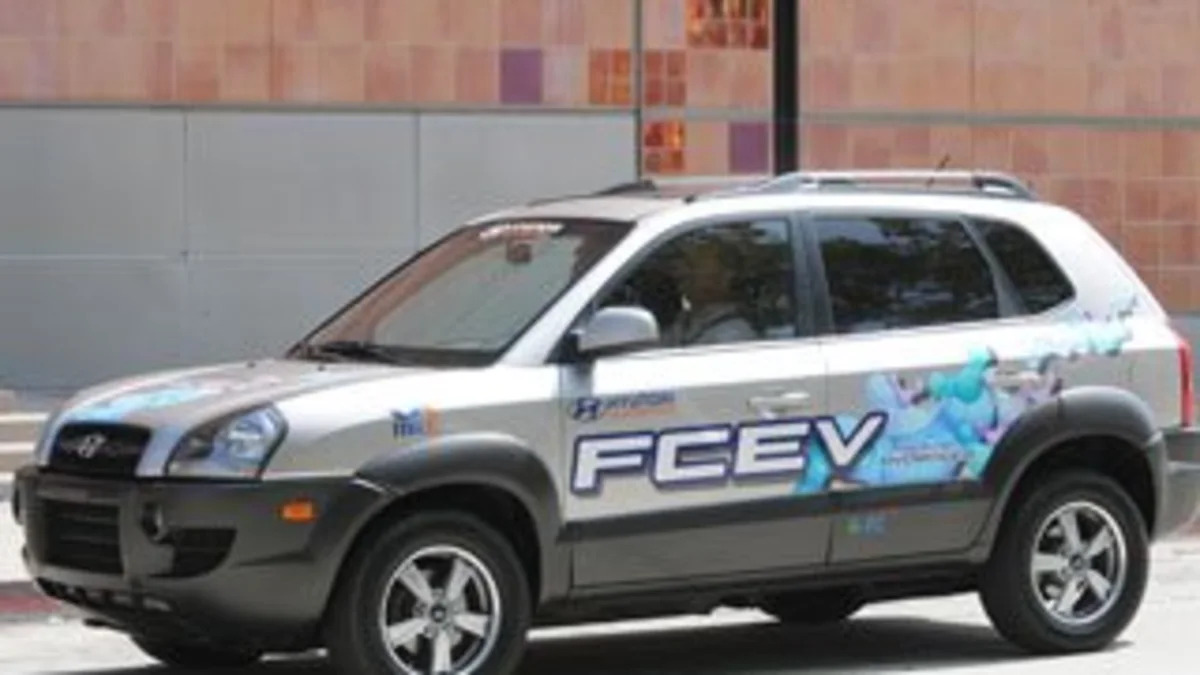
-

- Image Credit: Hyundai
To prove that it can be done, Hyundai recently drove a 28-day road trip across the U.S. using zero gallons of gas.
The Hyundai Tucson company reps took for the ride was fueled by hydrogen. Even without adequate fueling stations around the country, the company wanted to show that the technology is ready for prime time. The infrastructure just needs to catch up. -
- Image Credit: Hyundai
Mike O'Brien, Hyundai's vice president of product development, said hydrogen fuel cell technology could be on the market in the next few years.
"It's a bit of a chicken and egg situation," he said. "The question is where there be a place to fuel them?" -
- Image Credit: Hyundai
During the journey, the Hyundai team fueled the Tucson in such places as Austin, Texas, and at Ford Motor Company in Dearborn, Mich. They continued through to D.C. and up to New York City.
The Tucson traveled some 406 miles without refueling on 5.6 kilograms of hydrogen, roughly the equivalent of 70 mpg when using gasoline. That's some three times farther than the range of any of the battery operated vehicles that are out there today. -
- Image Credit: Hyundai
When unable to find a fuel station, Hyundai managed to buy commercial-grade hydrogen from commercial gas companies. That's not something the average consumer would be able to do.
Still, the road-trippers said they didn't feel anxious about running out of fuel.
Zafar Brooks, a Hyundai director who manages the project, said something else annoyed him:
"Instead what got my goat: the satellite radio was not activated," he said, noting the car was designed for the Korean market, which doesn't have satellite radio. "I listened to my entire iTunes library and I gained weight from too much junk food."
There are pros and cons to hydrogen fuel cells, and the biggest problem right now remains the lack of infrastructure. -
- Image Credit: Hyundai
The Pros
Hydrogen is a clean form of energy. The only emissions coming out of a hydrogen tail pipe are water.
And there is plenty of hydrogen to go around. It is one of the most abundant resources in the U.S.
"It has a better well-to-wheel carbon footprint than hybrid and plug-in EVs," O'Brien said.
Hyundai is trying to get hydrogen from clean sources, by capturing hydrogen gas from sanitation plants.
The technology, green as it is, does not sacrifice performance: The acceleration is brisk and equivalent to an Elantra or a Corolla style car, the company says. -
- Image Credit: Hyundai
The Challenges That Lie Ahead
By 2015, Hyundai should have a premium hydrogen powertrain option that could fit on any size vehicle. But something has to give for hydrogen fuel-cell technology to gain traction.
Engineers have to work to reduce the cost. Fuel cell vehicle price would be the price of an upgrade engine -- comparable to upgrading from a V-6 to a V-8, roughly some $6,000. Hyundai is trying to be a fuel efficiency leader in the industry. The auto-maker now has four models with a fuel economy of 40 mpg or greater.
"It's our goal to find a zero-carbon solution for personal mobility," Brooks said.
